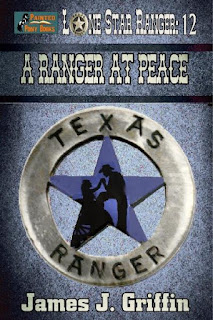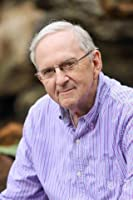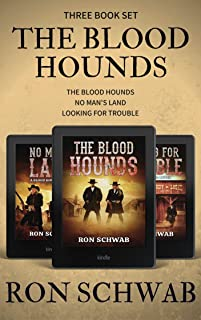Hi everyone! While I was deciding what to blog about this time, I came upon an OLD blog of mine from October 1 of 2012! Oh wow--nearly TEN YEARS AGO. But hey, I'm still just as proud of this book and my participation in this series as I was then, and if you have not had a chance to read it, and the following books, PLEASE REMEDY THAT QUICKLY! This series was the brainchild of Troy Smith, and he did a fantastic job of putting it all together and "herding the cats" to make it all happen. I sure do miss writing for this series and am so glad to have been a part of it. SO...without further ado, I'm posting this re-run of that blog so many years ago and fondly remembering all the wonderful stories that followed this first one!
Today, I’m proud to introduce five wonderful western writers who I was privileged to
work with on a “new concept” western, the kick-off novel of the Western Fictioneers’ Wolf Creek series.
Western Fictioneers is producing a new series of western novels, under the umbrella title Wolf Creek. The series gets its name from its setting, the fictional 1870s town of Wolf Creek, Kansas. The first installment, Bloody Trail, was released on September 1, with a new volume to follow every three or four months. Under the house pen name Ford Fargo, the six authors who collaborated on the first book of the series, Bloody Trail, are Clay More, James Griffin, L.J. Martin, Troy Smith, James Reasoner, and Cheryl Pierson.
Bill Torrance, Spike Sweeney, Derrick McCain, Charley Blackfeather, G.W. Satterlee, and Logan Munro are common citizens, until the day their small town of Wolf Creek, Kansas, comes under a methodically cruel siege. Led by one of the most brutal men of the post Civil War years, Jim Danby, the outlaw gang that invades Wolf Creek figures they got away clean with murder and bank robbery. But the dwellers of Wolf Creek have secrets of their own, and the posse that goes after Danby and his men are anything but the ordinary people they seemed to be before the attack. They'll go to any lengths to keep their town safe, no matter how long they have to follow the BLOODY TRAIL.
I asked three questions of each of the authors about their character, collaboration, and what’s to come in future editions of the Wolf Creek series. For the sake of space, I’ll post the questions once here at the beginning and number the answers to correlate.
Questions:
1. Wolf Creek is a town filled with secrets, and people "with a past." Tell us a little about your character without giving away all his secrets. What kind of man is he and how does he change in this story?
2. The idea of a collaboration with other authors is sometimes daunting. What did you enjoy most about working with your co-authors under the pen name "FORD FARGO"?
3. Are there any plans for your character to reappear in a future edition of the Wolf Creek stories? If so, what edition will it be?
Let’s start with Clay More’s answers, since his character kicks the story off.
CLAY MORE—Dr. Logan Munro
1. Logan Munro is a Scottish doctor, as am I. Shortly after graduating from
Edinburgh University he served with the British Army Hospital in Scutari in Constantinople during the Crimean War. In 1856, at the end of the war he had the opportunity to go to India. While there he married Helen, a young governess. A year later The Indian Mutiny took place and he was involved in the siege. Sadly, Helen died from malaria. Disillusioned with life, and bereft at losing Helen, Logan sailed for America. Along came the Civil War, during which he served as a surgeon in the Union Army. When the guns ceased and the smoke cleared he settled down in Wolf Creek. He has seen a lot of action in the three wars he served in and he has honed his surgical skills on the battlefields. He is tired of all the killing and he just wants to settle down as a family doctor in a sleepy town.
I don’t think that Logan has really changed in the course of the story. Like all of the decent citizens of Wolf Creek he is sickened by the attack by the Danby gang. When a posse is formed he insists on going, since he feels that he may be needed. His training and his experience mean that he keeps a cool head when he is under pressure.
2. This was indeed a very daunting prospect, since I was working with top names in the western genre, five writers whose prose and imagination I greatly admired. When Troy gave me the task of opening the story I was naturally anxious in case I failed to engage the reader in those first two chapters, which would result in the whole project collapsing. Troy had worked out an outline for us all to work to and everyone had the opportunity to chip in until we had the plot mapped out. Then each writer told the story through the viewpoint of their character. I think Troy was inspired to come up with the whole concept. We wrote the book sequentially, so I had to write mine quickly and hand it on to Jim Griffin, who then wrote his story and handed it on to Troy. Then Larry took up the reins and handed it on to James. And of course, Cheryl had to finish it off, which she did beautifully.
It was a lot of fun, but each writer had his or her own pressure to keep the story moving. I really enjoyed working with all of the writers and seeing just how the story panned out. I have to say that Troy, who ramrodded the whole thing, did a fantastic job in taking the whole manuscript and blending it seamlessly together. I think the result is a book that has turned out to be greater than the sum of its parts.
3. Yes, I am happy to say that Logan returns in Book 4 - The Taylor County War. In fact, I am working on it right now.
LARRY MARTIN—Angus “Spike” Sweeney
Angus “Spike” Sweeney is the town blacksmith.
He wears a butternut wool Confederate Kepi with a Davis Guard Medal pinned above the eye shade and invites comments, which might just be met with an iron bender’s grip on the throat and a pounding left to the proboscis. Considered a hero of the Davis Guards and the defense of Sabine Pass. He is usually unarmed, but is deadly within twenty feet with his hammer, and can split hairs at fifteen with his hatchet or Arkansas toothpick. A decent and deliberate shot with both a sidearm and long gun.
Spike was born in New Orleans and was a sailor (both in trading vessels in the Gulf of Mexico and on the Mississippi) and on-board smithy, where he acquired some skill as a gunsmith as well. He keeps a garden in the rear of the shop with both vegetables and flowers, and is teased about the flowers. He is bashful around women and wouldn’t swear in front of one if a beer wagon ran over his moccasin clad foot, but is on the prod for a woman who can put up with his (in his eyes) questionable looks, and long hours in front of a hot forge.
Spike’s silent partner at the forge is Emory Charleston, an ex-slave -the two men make an incongruous, but mutually loyal, pair. Em’s biggest complaint about Spike is the Confederate cap he insists on wearing.
JIM GRIFFIN—Bill Torrance
1. My character is Bill Torrance, the owner of the Wolf Creek Livery stable. He’s a
man who seems to care only for horses, and little else. He’s never even been known to carry a gun. In modern-day terms, he’d be considered a “wimp”. However, Bill Torrance is not his real name, and his background is far from the picture he presents to the citizens of Wolf Creek. This becomes clear when the town is attacked by the Danby gang.
2. First, it was an honor to be asked to participate in this project, with authors far more well-known than I, all of whom I admire. What I found most amazing and enjoyable was the complete cooperation among all the authors, and the complete lack of egos. Everyone was willing to bend to let the storyline mesh together cleanly. All of the authors were allowed to use the other authors’ characters in their chapters, as long as they didn’t change the character “owner’s” concept of his or her character. Again, everyone was fine with that. By everyone working together and setting aside our natural instincts to not want anyone else using “our” characters, we were able to avoid transition and storyline problems.
3. Yes, Bill Torrance, now using his real name, will be appearing in a future Wolf Creek book. I believe Volume 6. In that book, we’ll learn more about him, plus he’ll be interacting with Edith Pettigrew, widow of one of the founders of Wolf Creek. Bill had a confrontation with her in Bloody Trail, so when they meet again the sparks will once more be flying.
TROY SMITH—Charley Blackfeather
1. Charley Blackfeather’s father was an escaped slave, and his mother was Seminole –he
was raised as a member of that tribe, and as a very young man fought against the U.S. military in the Seminole Wars. Later, during the Civil War, he served in the same blue uniform he had once fought against… now (1871) he serves as a cavalry scout, making use of his vast knowledge of Kansas and Indian Territory.
Charley is an adept tracker and hunter. He bears a lot of pain from the losses he has suffered in the various wars, but carries it stoically. He can be pretty intimidating if you don’t know him well –but if he is comfortable with you he can display a wry sense of humor. In the course of our first episode, Charley is visited by ghosts from his past that re-awaken his grief and rage. He also begins to develop new friendships, with people he would not have expected he would ever trust.
2. As editor of the series, I admit I did have some trepidation about trying to coordinate this kind of complex project, and about dealing with so many different authors. I feared it would end up being an exercise in herding cats, and that I would have a lot of stubborn, narcissistic, recalcitrant people to deal with (in other words, writers.) But I was pleasantly surprised. This book, and the ones that are set to come after, were joys to work on. Everyone cooperated wonderfully- it really did feel like a team from the outset. And the rich, vibrant characters everyone created came alive immediately.
3. Well, that’s kind of a trick question in my case. As editor, I will be writing a section in every book, to help pull the various other parts together. I have two characters –one for stories that take place mostly in town (Marshal Sam Gardner) and one for stories that take place largely outside of town (Charley Blackfeather.)
JAMES REASONER—Sheriff G.W. Satterlee
1. My character, Sheriff G.W. Satterlee, is a former buffalo hunter and army scout who
drifted into packing a badge, and in the process he discovered that he's an instinctive politician who enjoys the power of his position. He's not the morally upright lawman hero so often found in Western fiction, but neither is he the corrupt official out to line his own pockets. Rather, he's somewhere in between . . . which means that he's capable of either inspiring us or disappointing us, depending on the situation in which he finds himself and his reaction to it. In BLOODY TRAIL, he discovers that maybe he has a little more of a conscience than he thought he did. As with most things about G.W. Satterlee, whether that's a good thing or a bad thing, we just don't know yet . . . and probably neither does he.
2. I really got a kick out of the passion and enthusiasm the other authors brought to the project. Everyone tried to make this the very best novel it could be.
3. Since G.W. Satterlee is the county sheriff, headquartered in Wolf Creek, he's bound to make plenty of return appearances, ranging from brief cameos to leading roles in some books. I believe he's supposed to be featured again in the fourth book in the series.
My blog can be found at http://jamesreasoner.blogspot.com
CHERYL PIERSON—Derrick McCain
1. I have two characters in this story, Derrick McCain, who has come back to Wolf
Creek after many years of "drifting" after the war. He's uneasy with himself and his past--he did some things that he regrets both during and after the war. But he has a personal stake in joining the posse to go after the gang that attacked Wolf Creek...he's seeking revenge of his own. My other character is Carson Ridge, a member of the Cherokee Lighthorse law enforcement. He makes a brief appearance but will be back in future editions of Wolf Creek.
2. I truly loved working on this project. Getting to read the other parts first really helped me in my decision as to how to end it properly, since I wrote the last two chapters. It was important to "get it right" because the ending has to leave the reader wanting more. But every chapter built on the one that came before it, and Clay, Jim, Troy, Larry and James really made my job a lot easier than it might have been otherwise. This was Troy's idea, and he has been organized and kept the ball rolling all along. So for me, the entire experience was really a good one--and nothing like I'd ever done before.
3. Derrick McCain will appear in book 5, Showdown at Demon's Drop. I also have a couple of short stories planned for his character in future anthologies. Carson Ridge may also appear in book 5--I'm not certain yet, but I know he will turn up again in the future somewhere!



.png)















